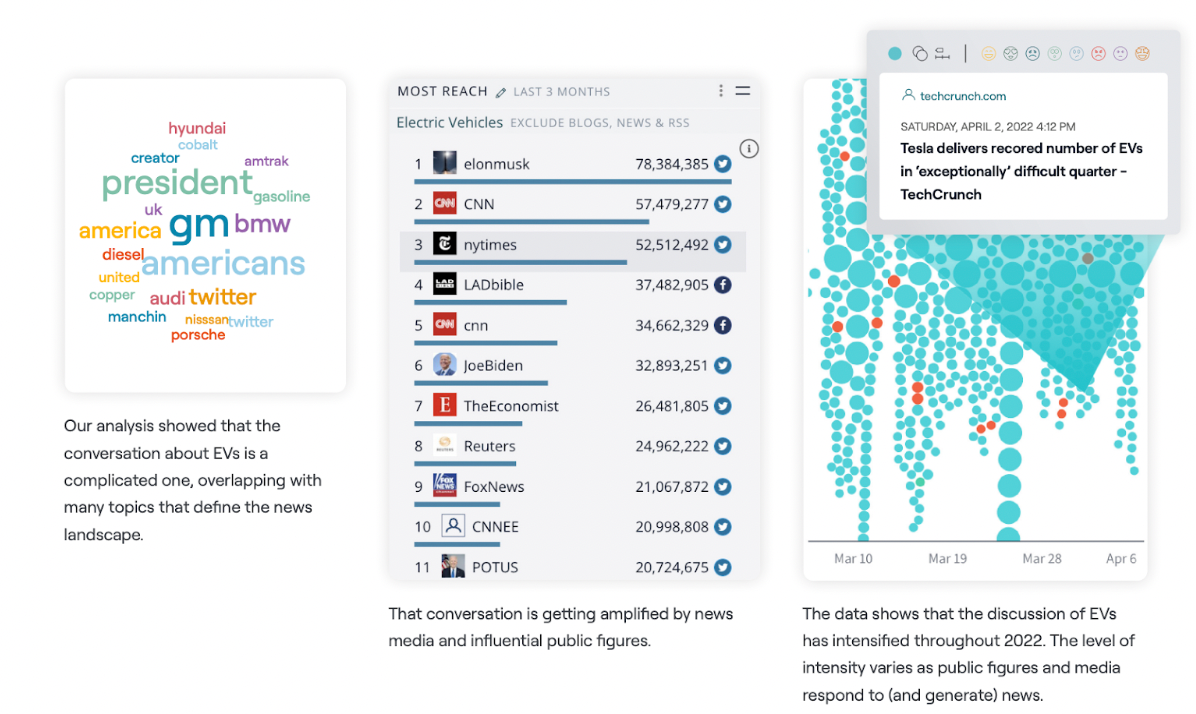What Social Sentiment Reveals about High Gas Prices
Reputation Staff Writer

Normally the onset of summertime ushers in hopeful anticipation of barbecues, baseball games, vacation road trips, and relaxing vibes. But in 2022, the ugly reality gas prices have crashed the good vibes. The high cost of gasoline remains an important worry among Americans.
According to Gallup, approximately one in five Americans mention the high cost of living/inflation (17%), or fuel prices (4%) specifically, as the most important problem facing the United States in 2022. The public conversation about gas prices continues to dominate social media, as any casual search for “gas prices” on Twitter will reveal.
At Reputation, we were curious to understand what people are saying about rising gas prices. We wanted to dig deeper than a casual Twitter search. We used our own social listening tools to examine unstructured social media feedback in order to perform an in-depth analysis of trends related to the topic of gas prices. Our team discovered some interesting nuances that create opportunities for businesses.
What People Are Saying About Gas Prices
Of course, consumers are worried about gas prices — not only because they are high but also because they may remain that way for some time. Americans are aware that gas prices are affected by a variety of complicated issues, including the ongoing fall-out of the Russian invasion of Ukraine and the long-term effects of a global supply-chain crisis.
However, the timing of higher gas prices could not be worse. The United States was already in the grip of inflationary prices across the board for months, and gas prices are only making matters more difficult.But we also found a few other interesting trends and nuances:
Gas prices constitute a retail industry issue. When we dug deeper into gas prices, we found that they’re just as much of an issue for the retail industry as any other. For example, popular retailer Costco had the highest number of social media mentions of any brand associated with gas prices. That’s because gas prices at Costco have been more affordable amid inflationary prices. On the one hand, the most popular trending adjective for Costco is “cheap.” But the downside is that so many people are flocking to Costco for gas that Costco is the visual symbol of long lines. Our findings show that people are desperate to find affordable gas prices, and they’re taking social media for any help they can get.
A spike in gas prices is contributing to a renewed conversation about electric vehicles (EVs).
For consumers interested in a used hybrid or electric vehicle amid high gas prices, some alternative-fuel vehicles have risen in price more than others. https://t.co/ItH2jCmwLx
— KTLA (@KTLA) April 18, 2022
It’s no coincidence that Tesla’s stock price has jumped since gas prices began to skyrocket. The cost of gasoline has naturally made consumers more curious to learn about EVs, and Tesla is the biggest EV brand in the world. In addition, social listening reveals that early adopters are open to switching from Tesla back to classic brands, which means that the public is becoming more aware that EVs are bigger than Tesla. But automotive original equipment manufacturers (OEMs) need to earn trust. We also noticed people on Twitter are complaining about the quality of EVs from OEMs.
What Businesses Should Do

- Use social listening and customer reviews to understand what customers are saying about your brand. By listening to social media and reviews on sites such as Google Business Profiles, big retailers like Costco that operate multiple locations can uncover potential sources of problems before they escalate. For example, long lines at the gas pump might be a sign that a location encountered a problem like a broken pump. Or, a retailer with a gas station may identify opportunities to build customer goodwill by offering incentives that encourage people filling up to go into the store.
- Respond to customers. High gas prices is a highly emotional topic fraught with misinformation. Monitor what customers are saying about your business, and be alert for accusations of price gouging. Be ready to respond to customers with facts delivered in a compassionate tone. This is true for electric vehicle businesses, too. Our analysis of gas-related topics revealed an inordinate number of tweets about the risk of EVs catching fire, which was spurred by at least one highly visible news story.
We reported these and many other findings in our newly published trends guide, The State of the Feedback Economy in 2022.










